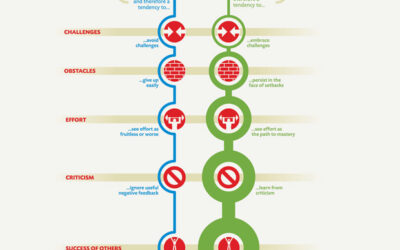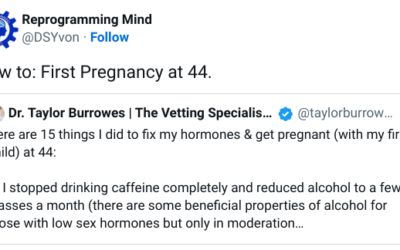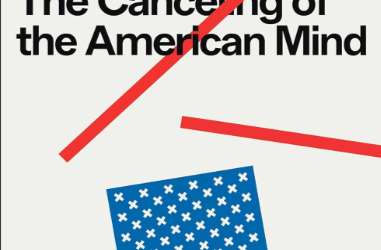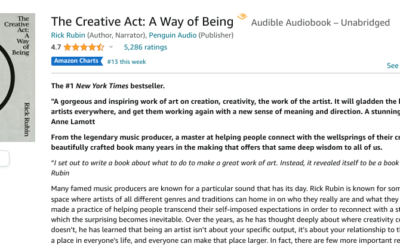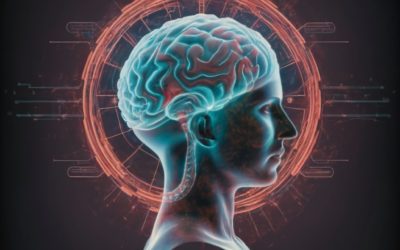Dr. Richard Davidson, a neuroscientist from the University of Wisconsin in Madison, and Dr. Sara Lazar, a neuroscientist based out of Massachusetts General Hospital and the Harvard Medical School gives an interview on his findings with meditation and its effects on the brain.
The following interview has been edited and condensed for clarity.
Host Bob Macdonald: Dr. Davidson, what was the most striking thing you found when you studied the meditation experts the Tibetan Buddhist monks?
Richard Davidson: Probably the most striking thing was in terms of the scientific findings was the presence of these very high amplitude gamma oscillations that occurred in the meditation period when they were meditating, but also were very prominent in their so-called baseline state. And I should say that these are if you will professional meditators. These are people who have an average of about 34,000 hours of lifetime practice and listeners can go do the arithmetic at home. But that's a pretty big number.
BM: What was going on in their brains that's different from what would be going on in say my brain?
RD: One of the important characteristics of these long term meditators if you will is that the distinction between the state of meditation in their ordinary state if you will is blurred.
This is the what we think of as the transition from a state into a trait. That is, it becomes an enduring characteristic of their minds and brains, rather than something transient that occurs only when they practice meditation.
Dr. Sara Lazar: Well we looked at brain structure and what we found is that there's several brain regions where there is more gray matter in the long term meditators compared to non-meditators. And as Dr. Davidson said that when you start meditating regularly that there is a shift that there's a blur between your meditation state and your everyday state.
And so we're interpreting these differences in gray matter to reflect that. That this is perhaps why and how you can get these shifts you're not meditation state looks more like your meditation state - the brain actually starts to rewire itself. And that's what we saw evidence for in these long term meditators.

SL: The most pronounced changes were in the insula. This is an area that's involved in integrating sensory experiences with cognitive thinking. And so you could think of that, sort of in a very loose hand-waving sort of way, as the mind body sort of area. We also found areas in the front of the brain which is an area involved in rational thinking and decision making.
BM: Dr. Lazar, we hear a lot about enlightenment, if meditation really does work. From a scientific point of view what is that possible do you see it?
SL: I think it's important to make a distinction between people who meditate for 20, 30, 40 minutes a day for stress reduction and people who are really committed to obtaining enlightenment. As Dr. Davidson pointed out, you could think of those monks as being professional meditators. And so I think that it really takes that sort of commitment -- full time commitment for many, many years -- in order to reach enlightenment. For the average Joe who's just meditating for stress reduction that that's not really a realistic goal.
BM: Dr. Davidson, you say that meditation could make people feel worse. What do you mean by that?
RD: It can exacerbate depression, it can precipitate psychosis. It can do some harm. It's really important for an individual who may be predisposed and have a history of some psychiatric difficulty to engage in meditation practice under the guidance of a teacher who is both a mental health practitioner as well as a meditation teacher.
And often if a person I think is doing worse it could very well be because the nature of the instruction is not as attuned to where the person is as it might be.
BM: Dr. Lazar, how do you feel about people going to a phone app for their guided meditations without a teacher present?
SL: The apps are like a book or any other recording or any other things that have existed in the past. I think they're great as a supplement but I don't think anything compares to having a teacher that you can talk to about your experience.
Unveiling the Secrets to Longevity and Creativity
In the quest for a fulfilling and...
Eulers Disk
Euler’s Disk is used to illustrate...
Unraveling the Meta-History: Understanding Crisis While The Fourth Turning Is Here – Review
Both Howe and Turchin share a common concern: the perilous state of American democracy. Their meta-historical frameworks, while offering glimpses of optimistic futures reminiscent of the 1950s or an Elizabeth Warren-led era, face skepticism. The challenge lies in the utility of such frameworks for short-term predictions, with both authors acknowledging the possibility of catastrophic outcomes or prolonged turmoil.
Daily Mindfulness: Quick and Effective Practices for a Better Day
Digital Detox: Start winding down by disconnecting from electronic devices at least an hour before bedtime. The blue light emitted from screens can disrupt your sleep cycle. Engage in activities like reading a physical book or practicing gentle stretches to signal to your body that it’s time to relax.
Gratitude Meditation: End your day on a positive note with a gratitude meditation. Reflect on the events of the day and express gratitude for the positive moments. This practice cultivates a sense of fulfillment and promotes a restful night’s sleep.
Medical Benefits of Guava Leaves with Links to Heart, Digestion, Menstrual Cramp Relief and more.
Guava leaves offer various medical...
The Neuroscience of Mindfulness: How Meditation Can Impact Your Brain
Studies reveal enhanced attention, improved emotion regulation, and stress reduction through mindfulness practices [1]
The University of Pennsylvania’s research emphasizes its influence on concentration, emotion regulation, and self-awareness [2]
48 Laws of Power and Unveiling the Power Paradox: A New Perspective on Leadership and Influence
In the realm of power dynamics,...
25 Empowering Movies to Overcome Heartbreak, Get Over a Breakup and Ignite Self-Discovery
In the tumultuous journey of...
Mastering Coding: A Comprehensive Guide to How I Would Learn to Code
Mastering Coding: A Comprehensive...
Unleashing Success: Mastering 4 Transformative Mindsets for Personal Growth and Achievement
The Entrepreneurial Mindset isn’t exclusive to business moguls; it’s a versatile asset for navigating the modern world’s constant flux. Embracing risk, fostering creativity, and honing problem-solving skills are integral to this mindset.
Essential Skills
– Comfort with risk-taking.
– Cultivation of creativity and innovation.
– Sharpening critical thinking and problem-solving abilities.
– Taking initiative and fostering self-reliance.
– Effective communication and collaboration.
– Future-oriented thinking.
– Recognizing opportunities and adapting flexibly.
Minding Success: Navigating the Power of Dwecks Growth vs Fixed Mindset
In the quest for success, the mindset...
What is a Mindset and How to Improve Yours?
The potency of mindset lies in its ability to shape perceptions, behaviors, and outcomes. Drawing insights from psychology, neuroscience, and personal development, we discover that beliefs and attitudes significantly influence experiences and achievements. Carol Dweck’s research on growth and fixed mindsets exemplifies how viewing challenges as growth opportunities can lead to remarkable improvements. Neuroplasticity underlines that cultivating positive thought patterns can rewire the brain for success.
15 Things a Doctor Did to Get Pregnant at Age 44 with Her First Baby.
6) I started eating more seafood, eggs, butter, olive oil, carrots, beets, sweet potatoes, legumes, nuts, whole clean bread, rice/potatoes, fruits & veggies and cut back on meat (high quality meat is good but not in lieu of the rest). I had already cut out processed foods.
The Reckoning of Cancel Culture: Navigating ‘The Canceling of the American Mind’
At the heart of our predicament lies the pervasive and, at times, insidious phenomenon known as cancel culture. Lukianoff and Schlott shed light on the alarming consequences of this cultural shift, where even the slightest dissent or humor can trigger the merciless nullification rituals. It’s a chilling exploration into a landscape where freedom of expression is held hostage by the relentless pursuit of ideological conformity.
The Significance of a Pattern Interrupt or Mismatch Experience for Behavior Change
Behavior change is a complex process,...
Resolving Grief Strategy
This strategy comes from NLP Master...
Pain in Your Back? How the Right Meditation Chair Can Help
Over prolonged periods, these postures can strain the lower back, hips, and knees, leading to discomfort or even long-term injury.
This discomfort arises from several factors:
Poor Posture: Many people have ingrained poor postural habits, which become exacerbated during meditation.
Prolonged Sitting: Extended periods in one position can restrict blood flow, leading to muscle stiffness.
Underlying Health Conditions: Existing back problems can be aggravated by traditional meditation postures.
A Review and Walk Through Rick Rubin’s “The Creative Act”
Rick Rubin, world-renowned music...
Ultimate Guide to Prompt Engineering for Generative AI
Prompt engineering plays a pivotal role in developing advanced AI services like chatbots for customer service or systems generating legal contracts. In a data-driven world, where training AI models efficiently is paramount, refining prompts ensures the delivery of solutions without manually sorting through extensive datasets.
15 Mindsets and Their Characteristics
1. Growth Mindset: A growth mindset...
Unplanned Childlessness – The Epidemic That Dare Not Speak Its Name
The predicament of declining birth rates and the ensuing population shrinkage isn’t an isolated problem but rather one with intricate ramifications. It reverberates through economic and social dimensions, leading to diminished property values and strains on social welfare funds. The consequences are severe and necessitate immediate attention.
Understanding the Dynamics of Hypergamy and Mate Selection Among Women
In exploring contemporary trends in...
Trends in Childlessness: A Comprehensive Analysis
In recent decades, the landscape of...
The Comprehensive Guide to the 12 Benefits of Hypnosis
Hypnosis is a special psychological...
How Hypnosis Can Help You Achieve Your Weight Loss Goals
Many people struggle with losing...
Exploring the Safety and Efficacy of Hypnotherapy
In recent years, hypnotherapy has...
Enhancing Your Potential: Advanced Self-Improvement Practices
Dream Big: Picture the most outrageous version of success. What does it look like? Now, double it!
Reverse Engineering: Break down colossal goals into manageable steps. Reverse engineer your way to success.
Zen at Work: Mindfulness in the Workplace Benefits That Will Blow Your Mind!
Discover the game-changing benefits of mindfulness in the workplace! From stress-busting to creativity boost, explore how embracing Zen at work can transform your professional life!
Mastering Confidence: Unleashing Overcoming Self-Doubt Techniques for a Flourishing You!
Discover powerful techniques to overcome self-doubt and boost your confidence! Unleash the secrets to conquering insecurity and building a flourishing, empowered version of yourself!
Unleashing Your Potential: The Revolution of AI-Driven Personal Development Tools
Say goodbye to sticky notes and manual tracking! AI-driven personal development tools effortlessly monitor your habits, offering insights into patterns and trends. Did you hit the gym five days in a row? Celebrate that win! Slipped on your healthy eating habits? No worries—your AI companion will suggest strategies to get back on track.
Mindful Productivity Hacks: Unleash Your Inner Zen Master for Maximum Efficiency!
Dive into a world of self-help strategies for emotional well-being! From quirky habits to profound insights, discover tips to boost your mental mojo and reclaim your inner peace.
Unleashing the Inner Zen: Self-Help Strategies for Emotional Well-Being
Dive into a world of self-help strategies for emotional well-being! From quirky habits to profound insights, discover tips to boost your mental mojo and reclaim your inner peace.
AI Applications in Mental Health: Revolutionizing Wellness and Treatment
Artificial Intelligence (AI) is...









